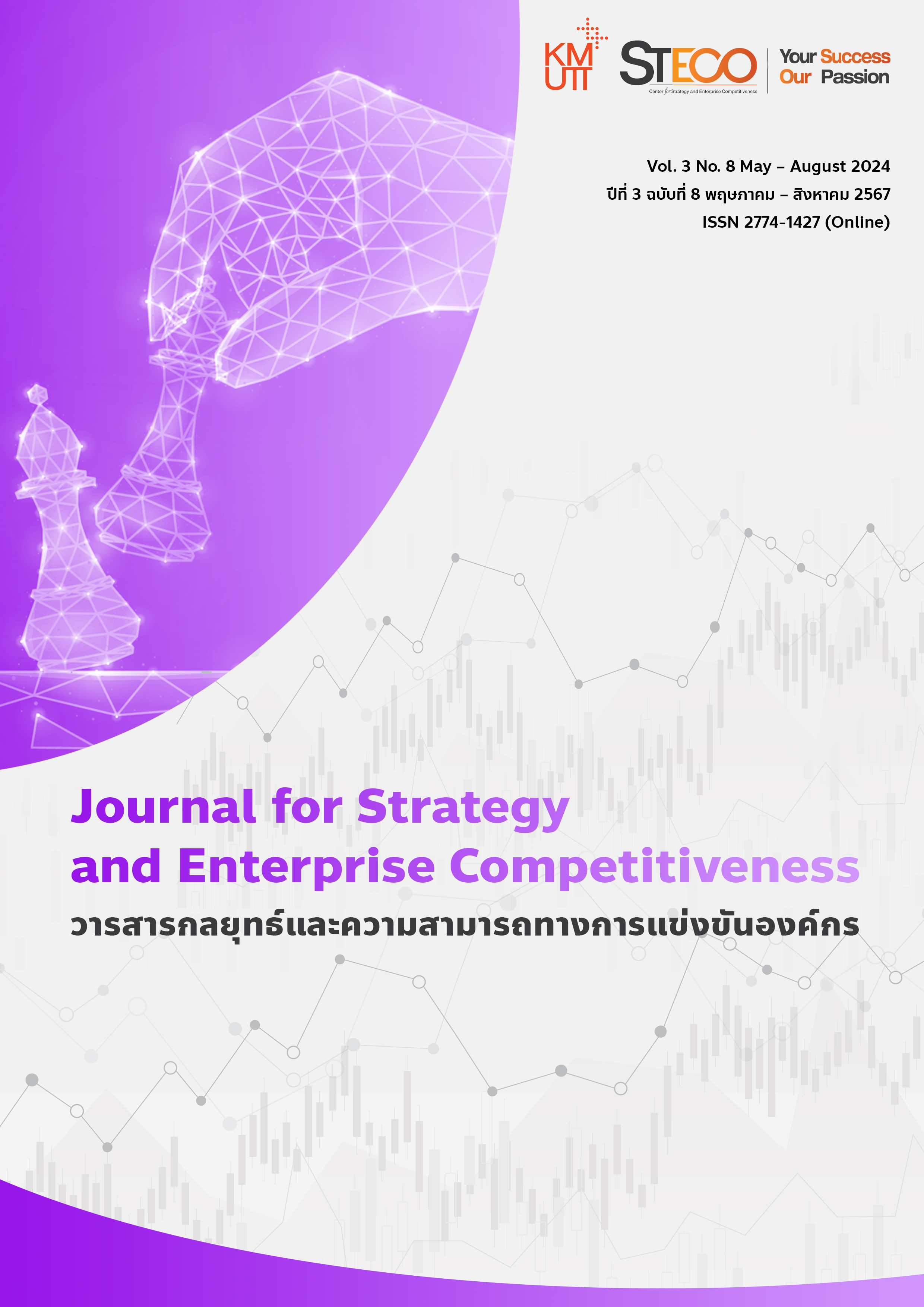Communication Factors for Managing Project with Co-located Team and Virtual Team Affecting Project Success: A Case Study of a Healthcare Facility Service Company in Bangkok
Keywords:
Project Communication management, Project Management, Project success, Communication factorsAbstract
The objective of this research is to study the communication factors for managing project with co-located team and virtual team affecting Project Success: A Case Study of a Healthcare Facility Service Company in Bangkok. The study was motivated by the significant changes in project management practices due to the COVID-19 crisis. Four communication factors were examined: the Source, message, channel, and receiver, all of which are considered crucial to project success. A quantitative research approach was employed, collecting data from a sample of 63 project participants within the company. The Pearson correlation analysis revealed that all four communication factors had a strong correlation with project success in Virtual Teams, while only the receiver factor showed a strong correlation in Co-located Teams, with the sender, message content, and communication channel factors showing a moderate correlation. These findings underscore the importance of selecting appropriate project management strategies that align with the specific nature of the work and the project environment to enhance efficiency and ensure project success in the future.
References
Barkley, B., and Saylor, J. (1994). Customer-Driven Project Management. New York: McGraw-Hill.
Benchakosum, T. (2018). The Study of the Effectiveness of Communication Tools for the Success of Project Management in Master Controls Co., Ltd. (Case Study). Master of Business Administration, Graduate school, King Mongkut’s University of Technology Thonburi.
Berlo, D. K. (1977). Communication as process: Review and commentary. Annals of the International Communication Association, 1(1), 11-27.
Chaweerat, P. (2022). A Communication factors affecting the success of construction projects Case study of a project consulting company in Bangkok. Master of Business Administration, Graduate school, King Mongkut’s University of Technology Thonburi.
Jamchomroon, B. (2015). Communication Climate in Workplace, Communication Process, and Social Media Affecting Communication Efficiency of Private Company’s Employees in Bangkok. Master of Business Administration, Graduate school, Bangkok University.
Keawmanee, W. (2023). The Factors Affecting the Efficiency of Communication in Project Management: A Case Study of Federation of Accounting Professions Under the Royal Patronage of His Majesty the King. Master of Business Administration, Graduate school, King Mongkut’s University of Technology Thonburi.
Laphirattanakul, W. (2001). Public relations (10th Edition). Bangkok: Chulalongkorn University.
Nyandongo, K. M., and Davids, M. A. R. A. L. I. S. E. (2020). The impact of communication on project performance: an empirical study. In 26th International Association for Management of Technology Conference, IAMOT 2017 (pp. 404-425).
Ojiako, G. U., Johansen, D., and Greenwood, D. (2008). A qualitative re-construction of the project failure concept. Industrial Management and Data Systems, 108(3), 405-417. https://doi.org/10.1108/02635570810858796
Piennitikorn, R. (2021). Factor Affecting Effectiveness of EPC Petrochemical Construction Project in Virtual Team Environmen: Case Study of Large Construction Company in Thailand. Master of Business Administration, Graduate school, King Mongkut’s University of Technology Thonburi.
Project Management Institute. (2017). A Guide to the Project Management Body of Knowledge (PMBOK® Guide) (6th Edition). Pennsylvania: Project Management Institute.
Rovinelli, R.J., and Hambleton, R.K. (1977). On the Use of Content Specialists in the Assessment of Criterion-Referenced Test Item Validity. Tijdschrift Voor Onderwijs Research, 2, 49-60.
Stratone, M.-E. Vătămănescu, E.-M., Treapăt, L.-M., Rusu, M., and Vidu, C.-M. (2022). Contrasting traditional and virtual teams within the context of COVID-19 pandemic: From team culture towards objectives achievement. Sustainability, 14(8), 4558. https://doi.org/10.3390/su14084558
Yamane, T. (1970). Statistics: An Introductory Analysis. (2nd Edition). New York: Harper & Row.

Downloads
Published
How to Cite
Issue
Section
License
Copyright (c) 2024 Journal for Strategy and Enterprise Competitiveness

This work is licensed under a Creative Commons Attribution-NonCommercial-NoDerivatives 4.0 International License.
The opinions appearing in the content of articles of Journal for strategy and enterprise competitiveness. It is the opinion and responsibility of the article author. It is not the opinion and responsibility of the Center for strategy and enterprise competitiveness, King Mongkut's University of Technology Thonburi
Articles, information, content and images, etc., in the Journal for strategy and enterprise competitiveness. It is the exclusive copyright of the Center for strategy and enterprise competitiveness, King Mongkut's University of Technology Thonburi. If an individual or entity wants to distribute all or part of the content or for any action must obtain written permission from the Center for Strategy and enterprise Competitiveness, King Mongkut's University of Technology Thonburi.


